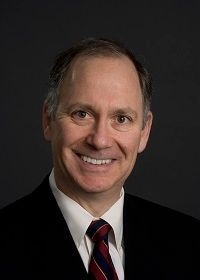EBOLA FACEOFF: Are quarantines good medicine?
Governors in four states have enacted quarantines on health care workers returning from treating Ebola patients in West Africa. The US Centers for Disease Control and Prevention (CDC) says that is not necessary. In interviews with HCPLive's Gale Scott, two physicians offered sharply different opinions on the states' quarantine policy.
EBOLA FACEOFF: Are quarantines good medicine?
Governors in four states have enacted quarantines on health care workers returning from treating Ebola patients in West Africa. The US Centers for Disease and Protection says that is not necessary. In interviews with HCPLive’s Gale Scott, two physicians offered sharply different opinions on the states' quantine policy.
Question: do you favor the quarantines on health care workers who treated Ebola patients now in effect in New York, New Jersey, Connecticut and Illinois?

Jane Orient, MD
Dr. Orient, a graduate of Columbia College of Physicians and Surgeons, is president of Doctors for Disaster Preparedness. She is an internist practicing in Tucson, AZ.
Quarantine has been a bedrock principle of public health for centuries. Dozens of nations are restricting entry of persons from area s where the Ebola epidemic is raging. Hundreds of health workers have been infected in Africa, and about and about half have died. We know screening at the airport can tell you if someone has a fever, but can’t tell you they won‘t get sick.
When I heard about the nurse from Maine who was quarantined in NJ and saw the photos of her surroundings my thought was that while the quarantine was the right thing to do we will have to do a little better than that. And of course because she lived in Maine she couldn’t just go home. When I heard that an arrangement for private transportation had been worked out later so that her quarantine could be continued in Maine I thought that was reasonable. Note that contact tracing had to be done on 800 people as a result of the flight taken by the second Dallas nurse just before she became ill.
The screening process would work better if we had a rapid blood test too—we may be missing cases because 15% of people with Ebola don’t get temperatures before they get sick.

There is a rapid test that the FDA [US Food and Drug Administration] has allowed in some circumstances, and it is used in Africa. If we could do this at airports it would be so much better. If you have the Ebola virus you don’t want your first symptom to be throwing up in a restaurant. For people coming back from West Africa it’s a matter of how much risk you want to take. If an incident like that happened it has a very severe effect—starting with the owners of the restaurant or other business, the patrons, the people who work there.
The case of Dr. Craig Spencer, the physician hospitalized with Ebola in New York, shows that you can pass a screening and still get sick. He knew he was at high risk and did not stay home.
I’ve heard the arguments that Ebola is not that contagious. People point to the family of Thomas Eric Duncan, the man from Liberia who died of Ebola in Dallas. They did not get sick. But they are still at risk. The World Health Organization says the incubation period can be up to 42 days, so we just don’t know for sure.
We need to stop this potential Ebola outbreak before we get hundreds of cases because we are absolutely not equipped to handle something like that.
We are not treating Ebola with the respect it deserves. The organism has been classified as a BioSafety Level 4 pathogen since the 1970s, but in 2010 we dismantled the Aeromedical Isolation and Special Medical Augmentation Response Team the Department of Defense had since 1978. The CDC [US Centers for Disease Control and Prevention] is now pretending that Ebola is a BSL 3 organism.

What’s at stake here is that we could have a terrible pandemic, our hospitals could be overwhelmed, and our medical system devastated. Already some workers are not showing up at Bellevue [Bellevue Hospital Center in New York City where Craig Spencer, MD is ill with Ebola], and hospitals that get these cases may be unable to perform their usual functions.
It does appear that people are not very contagious until they get sick, but there is no way of being certain. Unlike influenza, Ebola does not primarily attack the lungs, so people are not coughing up copious numbers of organisms. But there is evidence that Ebola has been transmitted to animals via aerosols. And experiments have shown that Ebola can remain infective for 90 minutes on droplet nuclei, the tiny particles remaining as bigger particles dry up. Transmission may be inefficient, but not impossible. BSL-4 facilities do require respirators with filtered air to protect workers.
Self-monitoring is a nice idea but unfortunately we are finding that we can’t rely on people to do it. It is noble that these volunteers have been helping in West Africa but we cannot allow exposing people at home.
As for the charges being made that the governors who enacted the quarantines are just concerned about votes, I disagree. I think it’s a reasonable thing to do. Governors are primarily responsible for people in their state. There is plenty of political pressure on federal officials not to disagree with the President.
Quarantines might be an impediment to getting volunteers to go to West Africa—but we cannot risk bringing this epidemic here. Sending a few more volunteers for short stints is not going to turn the tide. We need to send resources and training there, not bring virus here.
Look at the questions being raised now about quarantining our own troops. That won’t be popular, but it is an issue we have to deal with.

Bruce Hirsch, MD, FACP
Dr. Hirsch is an infectious disease specialist at North Shore University Hospital, Long Island, NY. A graduate of Cornell University Medical College, he is also the hospital's associate chairman for clinical services in the department of medicine and teaches at NYU School of Medicine.
I do not favor these quarantines. I think they do not work are not necessary and that they hurt.
They also do not help. A person with the Ebola virus who is not sick is not infectious. The best example of that is that Thomas Eric Duncan’s family and fiancée were spared even though they had contact with him for several days before he was hospitalized.
Ebola is a nuanced disease. It is not infectious early on but it is highly infectious in the last phases. In the early stages people who have it are people who need to be cared for, not punished. Isolating those who pose no public health threat will be a disincentive to report illness and increases risk to the community.
Thomas Eric Duncan was ill for three days and his family did not get Ebola because it is not that infectious even in early phases of illness. He infected two nurses when he was just days away from his own tragic death as the virus grew to very high concentrations. Ebola threatens health care workers and those who care for persons with advanced Ebola infection — not the general public.
A person becomes infectious only when there is a high concentration of this destructive virus. When there is high concentrations of virus, the person is obviously ill. People without illness are not infectious.

When I heard that nurse from Maine had been put into quarantine my thoughts were that the authorities were acting out of fear, and that she was a victim of timing and circumstance. That kind of quarantine is an inappropriate way to treat any human being, much less someone who has acting so heroically in going abroad to care for this patients. We shouldn’t be acting out of fear, we need to empower ourselves with information.
I realize that officials in NJ said they believed this nurse was ill, and that is why they confined her to an isolation tent in a parking lot in a Newark hospital.
But what happened is they scanned her forehead and got a temperature of 101 degrees, then they took her temperature orally and found it was normal. Later they did a PCR test for the virus and it was negative yet this nurse was detained for some time in a tent outdoors without a shower and access to very basic stuff.
Self-monitoring is the way to go. Dr. Craig Spencer, the physician hospitalized at Bellevue was monitoring himself and he did everything right. He was not sick the day he was out in public, so he was not infectious. People don’t go jogging or bowling when they are feeling sick. By acting on his high temperature immediately, calling Doctors without Borders,which immediately contacted the New York City Department of Health he showed the system could work.
There will be cases of Ebola here as long as there are cases in West Africa and I understand the fear and the precautions NY took afterwards, like shutting down the bowling alley Dr. Spencer visited. But it was not necessary. The risk to anyone else was nil.
This has to have a discouraging effect on volunteers like him. It makes it impractical, the idea that a person would have to be penalized by spending three weeks in house arrest—that’s a real problem.

President Obama must have seen that. Initially he said he would consider making such quarantines the national rule, but I think he went over the information and was informed by his advisors of the advantages and disadvantages of such a policy—though it could have political advantages.
Now we’re seeing reports that the Pentagon is wrestling with the concept of putting 4,000 troops helping provide security and construction of facilities in West Africa into isolation before they come home. The logistics and practical implications of that are staggering. Depriving this nation of their services and them and their families of their freedom for reasons of nervousness is dumb and expensive.
The only personal experience I’ve had with quarantine is working in a hospital in the early days of AIDS, and working with patients with multi-drug-resistant tuberculosis. They were isolated in the hospital, something we do for contagious infections. But the practice can have human costs. There is increased loneliness, depression. Solitary confinement is an unacceptable form of torture. Mandatory quarantine needs to be reserved only when the public health is actually threatened, not because some of us are afraid.